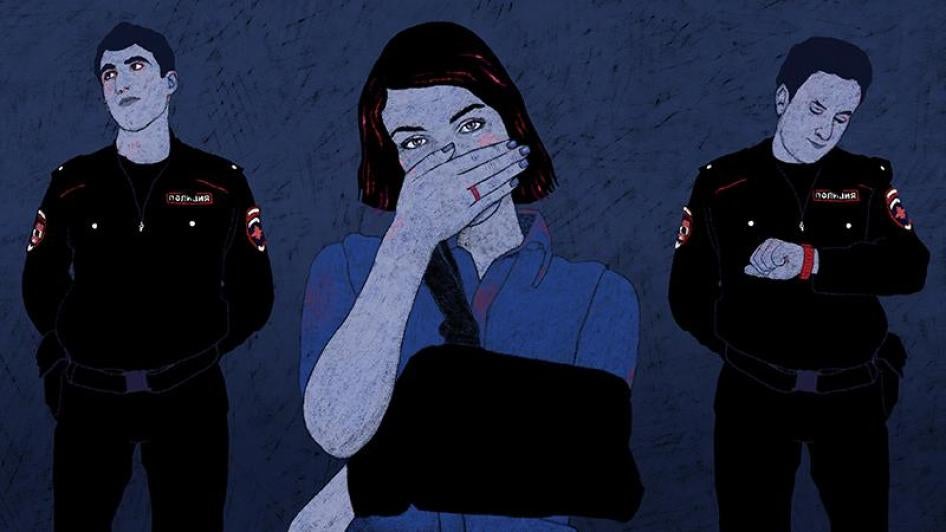In a landmark ruling – its first on a domestic violence case in Russia – the European Court of Human Rights found that Russia’s lack of legislation to combat domestic violence, as well as the absence of protection orders, indicated a systemic failure to address this critical problem.
The court’s July 9 ruling extensively cited the Human Rights Watch October 2018 report on domestic violence in Russia, exemplifying how the court considers our work to be an authoritative source.
In its ruling, the court said that Russian authorities are “reluctant to acknowledge the gravity” of the problem of domestic violence and its “discriminatory effect on women.”
The court ruling means that at least one victim of domestic violence in Russia has seen some justice in her case: the court ordered the authorities to pay the applicant, Valeria Volodina, 20,000 euros for damages she suffered.
But the ruling will hopefully have further consequences. The court communicated to Russia that it is looking at four other cases concerning domestic violence, which may lead to the court adopting the so-called pilot judgment procedure for these cases. Under this procedure, the court, when considering similar cases, not only examines if a violation has occurred on the facts of the case before it, but also reaches determinations about a systemic problem and instructs the government to adopt policy and legal changes to prevent similar violations in the future.
Domestic violence in Russia is pervasive, and official studies suggest that it affects at least one out of five women. As is the case with domestic violence statistics worldwide, this number is most likely underreported.
HRW’s report detailed obstacles survivors of domestic violence face in reporting abuse and obtaining help, including social stigma and distrust of police. It described common patterns of abuse, including how violence escalates systematically over time. Women described being choked, punched, burned, threatened with weapons, sexually assaulted and raped, and subjected to psychological abuse, among other offenses.
At the same time, Human Rights Watch found that police treat survivors of domestic violence with hostility and often fail to open criminal cases or conduct investigations in cases of domestic violence. Instead, they force victims to seek justice through private prosecution, a process that is both expensive and demanding upon the victim.
Russia lacks a national law against domestic violence and does not recognize domestic violence as a stand-alone offense, which makes it difficult for Russian government agencies to keep comprehensive statistics. Russia has even decriminalized the first instance of battery among family members – meaning that the first time domestic violence is reported to police, it is treated as a minor transgression with mild penalties, signaling to abusers that the violation is a less serious offense. Russian law also has no protection orders, which help keep women safe by prohibiting contact between a victim and her abuser. And Russia doesn’t have enough shelters for domestic violence survivors.
After the report was published, Human Rights Watch held meetings with government officials, members of parliament, police officers, and government and nongovernmental groups providing services to victims of domestic violence to share the results of the report and discuss remedies. We keep an active voice in Russia’s ongoing public discussions about domestic violence through regular media and social media engagement, participating in public events, and engagement with Russian activists. The lack of adequate legislation to protect women from domestic violence contradicts Russia’s international obligations, and regularly calling on the government to address this endemic problem is a core part of our international advocacy on Russia.











